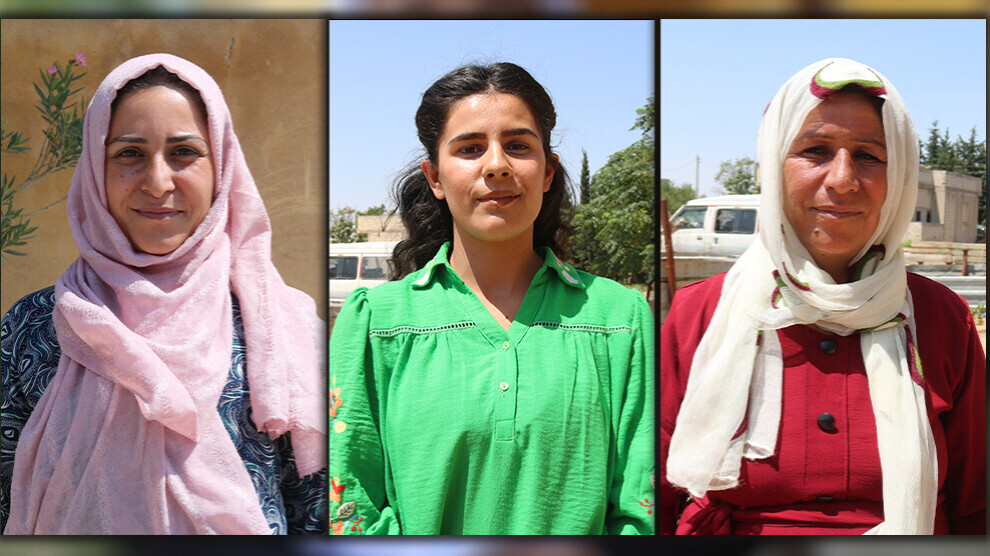'We are happy to live without government oppression'
Women living in the Euphrates Region of NE Syria say that they gained their freedom by rising up against all kinds of oppression during the revolution in Rojava and that they are happy to live without government oppression.

BEYDA OSMAN
Kobanê- Uprisings sparked in many Middle Eastern countries against governments in 2011. The uprisings, known as Arab Spring, also affected Syria. The people of North and East Syria, who were ignored and oppressed by the Baathist regime for years, rose up and liberated their cities.
On July 19, 2011, the revolution in Rojava started in Kobanê. NuJINHA spoke to some women living in the Euphrates Region of NE Syria about the revolution in Rojava, also known as women’s revolution. Silava Bekî, one of the women living in the region, indicated that Kurdish people have been oppressed for years. “The Kurdish people proved themselves in the revolution,” she said.
‘We can freely speak our mother language’
Silava Bekî told us that they could not speak their mother language and receive education in their mother language due to the ban imposed by the Baathist regime. “We used to be beaten and humiliated when we spoke our language. They aimed to make us forget our history and our identity. Then, people rose up and started a revolution on July 19. Since then, we have been able to freely speak our mother language and practice our culture,” she said.
‘I am happy to live without government oppression’
Leyla Mihemed, a resident of Kobanê’s Sheran town, pointed out that Kurdish people, especially women, were ignored before the revolution. She said, “As the Kurdish people, we started the revolution. We have achieved success thanks to the ideology and philosophy of leader Apo (Abdullah Öcalan). Now, we have our own universities and our children receive education in their mother language. I am very happy to live without government oppression.”
‘The revolution awakened the Kurdish people’
In an interview with NuJINHA, Merwa Sincar, a woman from the village of Qeremox, also spoke about how Kurdish people were oppressed by the Baathist regime.
“When the Kurdish people rose up against the Baathist regime, we gathered at my father’s house. The regime discriminated between Arabs and Kurds. The regime aimed to put enmity between Arabs and Kurds. As Kurdish women, we took part in the revolution. One of our friends was martyred while fighting to liberate our villages from the Baathist regime. However, we were not afraid but kept resisting. The July 19 Revolution awakened the Kurdish people, they rose up against all kinds of oppression and gained their freedom.”
